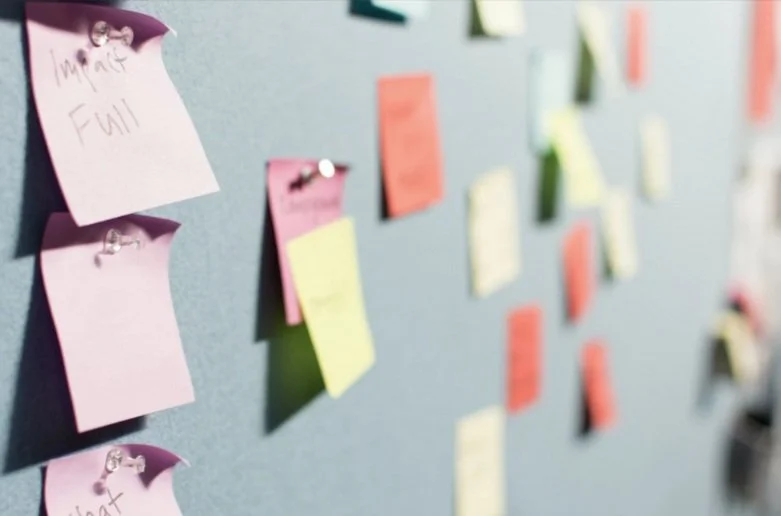A graphic of a pink and blue jacket with a tag that reads “Tailor me to make me more you”
In 2023 we shared a blog post highlighting 101 ways we’ve seen people job craft. It was our most visited page of the year, and people still ask us for examples of job crafting, so we thought you’d want some more for 2024!
For anyone who is new to job crafting, it is essentially about making small tweaks and changes to your job that make it a better fit. Typically we experience people job craft in 5 different ways: Wellbeing; Purpose; Skill; Relationship; and Task Crafting.
We have collected some of our favourite examples from teams and individuals we have worked with to bring job crafting to life.
These are personal examples, so they may not apply or be relevant to your circumstances. However we know that people appreciate some inspiration when they set out on their job crafting adventures.
Wellbeing crafting
Wellbeing crafting is enhancing and maintaining our physical and mental health through the work we do.
Examples:
Adjusting working hours in the winter so I’m spending more time working in the light
Taking annual leave around bank holidays to extend the long weekends to a full week off
Doing 10 minutes stretching at lunchtime after being sat down all morning
Switching my phone and email notifications off in the evenings
Doing an exercise class once a week with colleagues to hold us all accountable
Changing my working hours to start earlier so that I could prioritise exercise in the afternoon after finishing work
Arranging one walking meeting a week
Listening to my favourite podcast before starting work to put me in a good mood
Introducing a ‘fake’ commute to help start and end the day
Trying a standing desk
Saying no to requests that I enjoy doing but don’t have the time for
Moving to a condensed week in order to have a day off work mid-week
Getting into a routine of leaving the office on time (e.g. leaving the office with a buddy)
Bringing more nutritious snacks to work
Planning out my lunch breaks for the following week and blocking them out in my diary
Setting a timer to take a break from my desk at least every hour
Trying to keep one day a week meeting-free
Treating myself to a lie in once a week - starting and finishing later that day
Taking the stairs instead of the lift
Listening to my favourite album whilst working on a project
Purpose crafting
Purpose crafting is reframing how we think about our work in general including the value and significance it brings to us personally and others.
Examples:
Reflecting on the value I want to bring to others through my work in 2024
Saying no to requests that don’t align with the core purpose of my role
Considering how I can bring my coaching skills and tools into conversations outside of work, to support friends with career goals and challenges (this also allows me to further develop my skills - i.e. skills crafting)
Writing down three things I appreciate about my work and sharing with a colleague / friend / family member etc.
Defining who I want to be professionally in 2024 and sharing this with others (e.g. on LinkedIn / Teams chat)
Re-framing the importance and value of tasks I don’t look forward to (e.g. taking time to cost out proposals in detail is a way of looking after the business and saving my future self the same task)
Make a daily / weekly list of the best interactions with customers / clients
Sharing my passions at work (e.g. starting a running club)
Volunteering for projects that I find meaningful (e.g. working with charities, mentoring junior colleagues, etc.)
Setting up a fun competition with colleagues (e.g. who can get the most engagements on social media, plan the most sustainable work trip)
Finding new and innovative ways to gather feedback from stakeholders at the end of projects
Identifying at least one event for the year I would like to attend focused on a subject I am passionate about - make a business case for attending and share back key takeaways with colleagues
Reframing work travel as an opportunity to explore new places
Becoming a company advocate or champion for something I care about (e.g. inclusion, sustainability)
Surveying service users to better understand their needs and how my work can add value
Asking to be invited to more client-facing meetings to understand the impact of my work from their perspective
Reflecting each day on the person that I have helped the most
Creating a case study after completion of each project and sharing this externally (e.g. on LinkedIn)
Volunteering to arrange the next team social event
Exploring the impact of my role on the wider organisation
Skill crafting
Skill crafting is developing, refining and focusing on new skills.
Examples:
Researching what the most desirable skills are for 2024 and setting a goal to develop in one area
Taking a strengths assessment to better understand my top strengths and how I can maximise my use of these at work
Asking if I can record an online call to watch back for my own learning
Keeping up to date with industry news and thought leadership
Saying yes to a scary project
Learning a new skill (and teaching others)
Asking to shadow a colleague doing a specific task
Attending a lunchtime webinar
Asking for constructive feedback from someone I wouldn’t usually ask
Finding reliable sources of aggregated news on specific topics
Subscribing to email alerts for new articles on a specific topic
Finding an opportunity to present to a new group (e.g. to enhance public speaking skills)
Offering to arrange a lunch and learn for the team
Taking the lead in a team meeting (e.g. to develop leadership skills)
Setting a goal of writing 5 blogs each quarter and asking for feedback on how my writing has improved
Buddying with a colleague in a different team to learn more about what each other does
Listening to a work-related podcast whilst getting ready for work
Joining a LinkedIn community
Each team member sharing something new they’ve read / learned each week in a team meeting / 1:1
Experimenting with a new digital tool (e.g. using AI)
Relationship crafting
Relationship crafting is shaping how we relate and engage with others, including building and adapting our relationship with co-workers.
Examples:
Setting up calls to chat with colleagues on a Friday afternoon when I’m feeling disconnected
Setting up a Teams group for people with similar interest to me
Writing a thank you note to a colleague at the end of each week to express my gratitude
Starting a meet-up for new parents returning to work
Going to a networking event and sharing contact details with at least one new person
Asking for support to address a challenging working relationship
Offering to mentor a new colleague
Organising a team away day
Setting a goal to initiate one new conversation each week
Popping into someone else’s office to see how they’re doing
Scheduling informal 1:1 check-ins with direct reports to compliment more formal 1:1s
Scheduling regular (i.e. monthly) calls in advance with colleagues to reconnect
Setting a goal to learn something new about each team member
Setting up a coffee scheme that pairs colleagues from across the organisation at random to meet for coffee (online or in person)
Allowing time for informal “chit chat” before meetings
Spending less time with people that can drain my energy levels
Grabbing lunch with a colleague from a different team once a month
Car sharing
Asking someone about their passions outside of work
Arranging to check-in with a new starter to see how they are getting on
Task crafting
Task crafting is tangibly changing aspects of how we undertake our work including re-designing, adding or removing tasks.
Examples:
Rewarding myself with a small treat when I’ve done a task I don’t particularly enjoy
Mapping out my week so that there’s a balance of tasks that I enjoy and look forward to
Asking colleagues to delegate tasks that I enjoy but noticed I was missing from my work ‘plate’
Consciously aligning tasks to business goals as a source of motivation
Keeping a receipts purse in a convenient place so that business receipts don’t get lost
Protecting the first hour of the week to plan my tasks for the rest of the week
Recording voice notes for colleagues
Only checking emails during specific times
Finding ways to channel a strength e.g. bringing competition into everyday work
Doing the hardest task first thing when energy is at its highest
Experimenting with voice-to-text software for faster email, report and content writing
Doing admin on a Friday when the mood is more positive
Limiting non-essential meetings
Using the pomodoro method for time management
Delegating or swapping tasks that don’t play to my strengths
Experimenting with new tools to make existing tasks more fun, effective, etc.
Calling a colleague rather than emailing
Working collaboratively using Google Docs instead of Microsoft Word
Scheduling meetings for the afternoons to keep mornings free for focused work
Shortening all meetings by 10 minutes
Job crafting example number 101:
Write down 3 good things at the end of the working day. You can note these somewhere or share them with someone (we share ours as a team on LinkedIn every Friday).
We hope that you found these examples inspiring and that you can try out job crafting for yourself.
Let us know how you craft your work and you might get to feature on a future post! Email us: [email protected]
Happy crafting!








